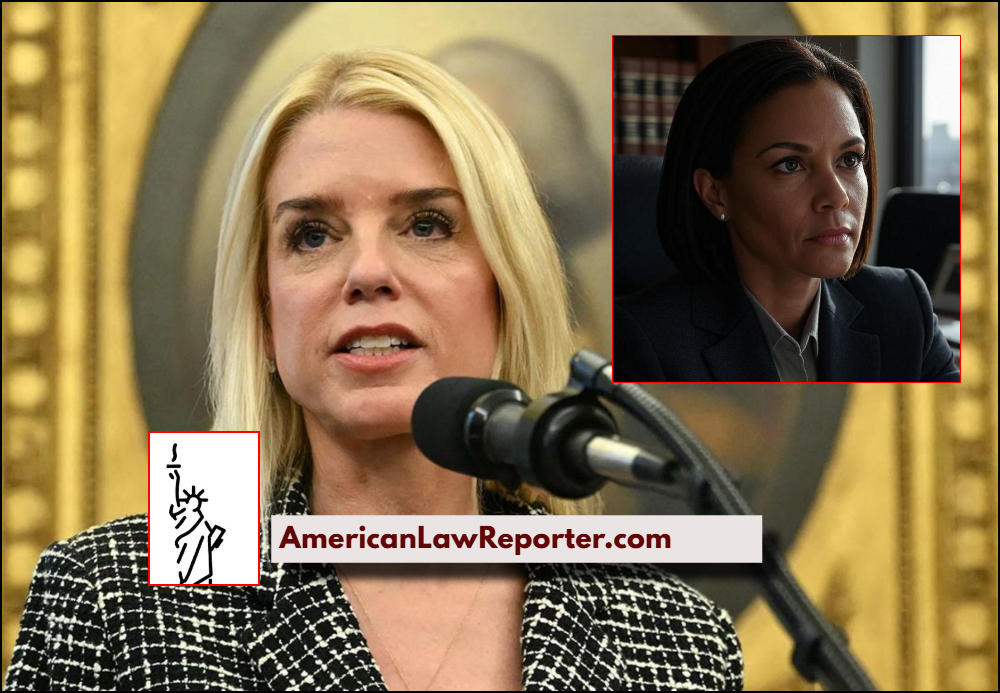Desire Grace, the former top deputy in the New Jersey U.S. Attorney’s Office, has formally appealed her termination, alleging she was fired in direct retaliation for being appointed by federal judges to replace Alina Habba as acting U.S. attorney.
Grace filed her complaint with the U.S. Merit Systems Protection Board (MSPB), arguing the July 22 firing was “completely unjustified” and violated her civil service protections. The appeal comes as legal challenges mount over the Trump administration’s controversial appointment of Habba—former personal attorney to Donald Trump—to the state’s most powerful federal prosecutorial role.
The appeal, obtained by Bloomberg Law through a Freedom of Information Act (FOIA) request, adds new urgency to a constitutional showdown now being considered by a federal judge in Pennsylvania, with implications for ongoing prosecutions and the separation of powers between the executive and judicial branches.
Dispute Over Habba’s Appointment Sparks Court Crisis

President Trump had initially installed Alina Habba as interim U.S. attorney for New Jersey, but her 120-day term was nearing expiration in July. Lacking Senate support—New Jersey Senators Cory Booker and Andy Kim, both Democrats, opposed her permanent confirmation—Trump faced a legal impasse.
On July 22, judges in the U.S. District Court for the District of New Jersey, acting under 28 U.S. Code § 546(d), exercised their statutory authority to appoint Grace to the role of interim U.S. attorney.
Hours later, Attorney General Pam Bondi fired Grace and decried the move by what she called “politically minded judges,” reaffirming the administration’s commitment to keeping Habba in power. The Trump administration then withdrew Habba’s formal nomination from the Senate and instead gave her the title “acting U.S. attorney” using a series of procedural workarounds.
Grace’s Career and Civil Service Status May Prove Pivotal
Grace is a seasoned federal prosecutor who joined the U.S. Attorney’s Office in New Jersey in 2016 and was promoted to chief of the criminal division in 2024. Habba had appointed her deputy in April 2025—just months before the court elevated Grace to the top post.
In her MSPB filing, Grace emphasized her merit-based promotions and consistent high performance, asserting that she held a career civil service position as an Assistant U.S. Attorney at the time of her termination—not a political appointment. This distinction may entitle her to protection from politically motivated firings.
Yet the MSPB may be unable to act. The board currently lacks the quorum needed to fully adjudicate appeals, following Trump’s dismissal of its lone Democratic member earlier this year.
Criminal Defendants Challenge Prosecutions Under Habba

The ongoing legal battle has started to spill into criminal courtrooms. In a closely watched filing, Julien Giraud Jr. and Julien Giraud III, facing federal drug and weapons charges, argued that Grace’s appointment was “legally controlling” and that the administration’s maneuver to reinstall Habba amounted to “unlawful executive interference.”
Their attorneys warned that allowing prosecutions to proceed under Habba’s authority would effectively nullify constitutional limits on appointments:
“Failing to block prosecutions… would signal that constitutional appointment limits are optional—and easily circumvented through executive sleight of hand.”
The Third Circuit’s chief judge agreed to move the dispute to Judge Matthew Brann in the Middle District of Pennsylvania, citing the need to avoid conflicts within New Jersey’s judiciary. Brann has scheduled oral arguments for August 15.
DOJ: Prosecutions Remain Lawful Regardless of Appointment Dispute
The Department of Justice maintains that it acted lawfully in both removing Grace and reinstating Habba. In recent filings, the DOJ argued that even if Habba’s appointment is ultimately deemed invalid, federal prosecutors under her supervision still retain the authority to pursue cases.
“Numerous courts, including the Third Circuit, have recognized that a federal prosecutor’s authority does not depend on the validity of a superior officer’s appointment,” the DOJ wrote.

